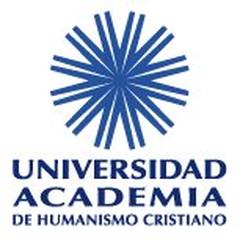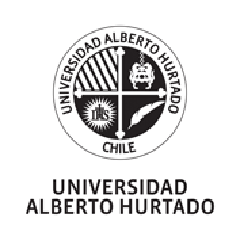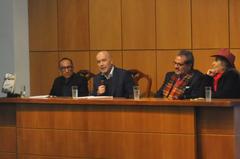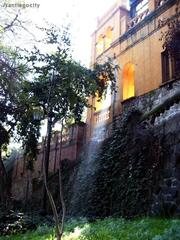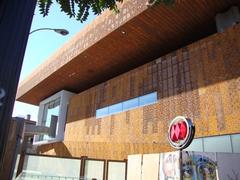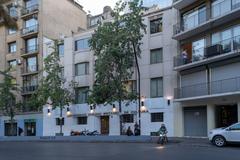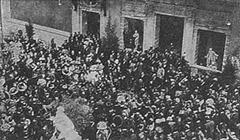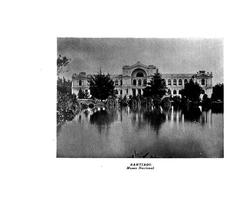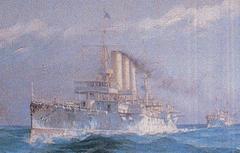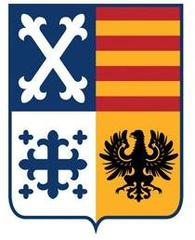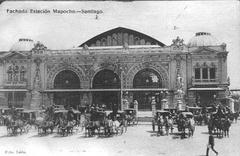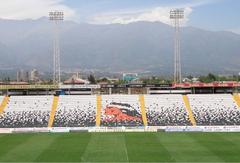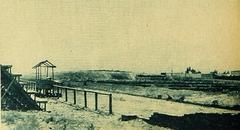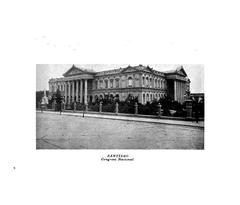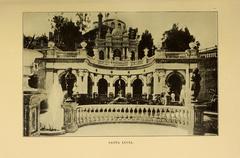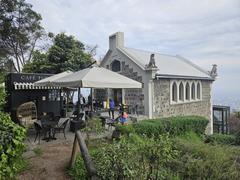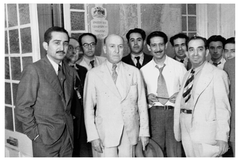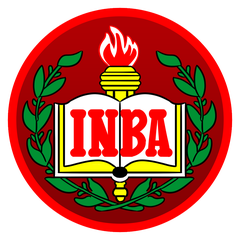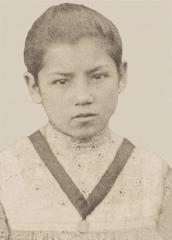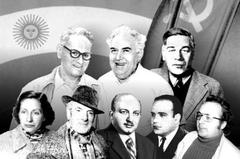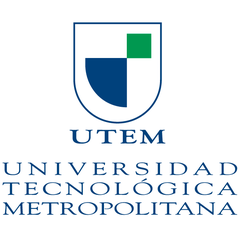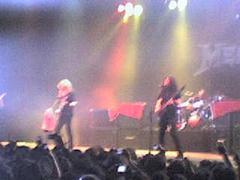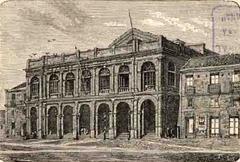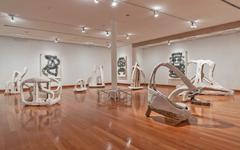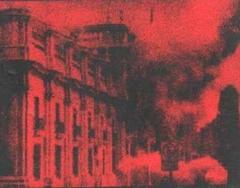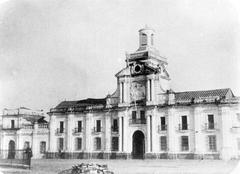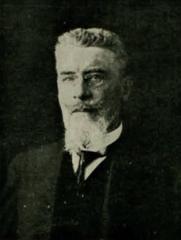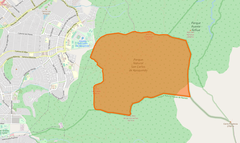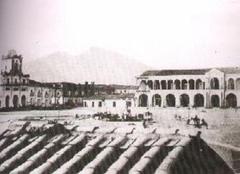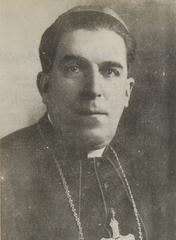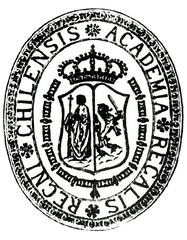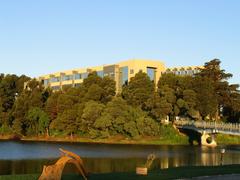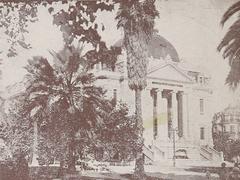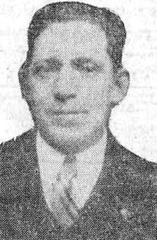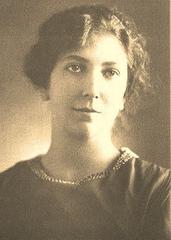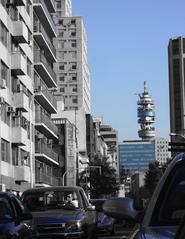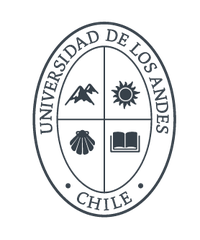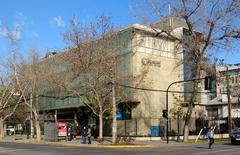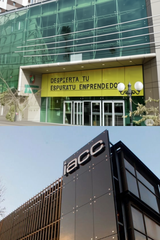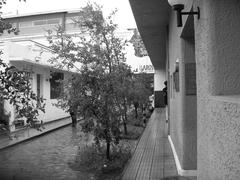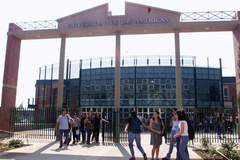Workshop Museum Santiago, Chile: Visiting Hours, Tickets, and Complete Guide
Date: 14/06/2025
Introduction
Nestled in the vibrant heart of Santiago, Chile, the Workshop Museum (Museo Taller) stands out as a unique cultural institution that fuses artisanal heritage, artistic innovation, sustainability, and community engagement. Unlike conventional museums, Museo Taller is an interactive space where visitors actively participate in hands-on workshops and creative processes, fostering both social inclusion and environmental awareness. Since its establishment in the mid-2010s by a collective of artists, educators, and sustainability advocates, the museum has become a dynamic cultural hub that reflects Santiago’s artisanal traditions and contemporary creative spirit.
This detailed guide provides everything you need to know about visiting the Workshop Museum—including its history, significance, visiting hours, ticketing, accessibility, guided tours, and tips for making the most of your experience. Additionally, you’ll find recommendations for nearby attractions and practical advice to enrich your cultural exploration in Santiago. For the latest updates, check the museum’s official platforms and trusted cultural resources (ReSources Project, Go Ask a Local, WhichMuseum).
Table of Contents
- History and Development
- Visitor Information
- Nearby Attractions
- Special Events and Community Engagement
- Frequently Asked Questions (FAQ)
- Conclusion and Recommendations
- References
History and Development
Origins and Mission
The Workshop Museum (Museo Taller) emerged in the mid-2010s, born from a vision to bridge the gap between artistic creation and public appreciation, especially within Santiago’s bohemian neighborhoods. Created by a collective of artists, educators, and sustainability advocates, its mission is to preserve Chilean artisanal heritage—particularly woodworking—while empowering visitors through participatory learning and creative expression (ReSources Project, Go Ask a Local).
Unlike traditional museums, Museo Taller offers experiential workshops focused on sustainability, recycled materials, and creative reuse. This aligns with global trends in museology that emphasize hands-on, socially inclusive environments.
Key Milestones
- Early Programs: The museum’s first initiatives centered on art and sustainability workshops, using recycled and found objects to stimulate creativity.
- International Collaborations: In 2017–2018, partnerships with the ReSources Project and “Quiénes Somos” brought installations and audiovisual essays addressing themes like waste, identity, and social justice (ReSources Project).
- Ongoing Evolution: Today, Museo Taller serves as a venue for both local and international artists, regularly updating its programs to reflect Santiago’s dynamic cultural landscape.
Integration with Santiago’s Cultural Scene
Located near the bohemian neighborhoods of Barrio Yungay and Barrio Brasil, Museo Taller complements Santiago’s established museums, such as the Museum of Memory and Human Rights and the National Museum of Fine Arts (WhichMuseum). The museum’s focus on collaborative and process-oriented art distinguishes it as a place where visitors become co-creators, not just observers. Museo Taller also participates in citywide festivals like Santiago a Mil, further integrating itself into the city’s vibrant cultural ecosystem (Calendario Chile).
Visitor Information
Location and Getting There
Museo Taller is centrally situated in Santiago and is easily accessible by public transport:
- Metro: Nearby stations include La Moneda, Santa Lucía, and Quinta Normal.
- Bus and Taxi: Multiple bus routes and readily available taxis serve the area.
- Bicycle: Bike racks are provided near the entrance.
- Parking: Public lots are close by, though limited during peak hours.
Visiting Hours
- Open: Tuesday to Sunday, 10:00 AM – 6:00 PM
- Closed: Mondays and public holidays
- Note: Extended hours may be offered during festivals or special events. Always confirm on the official website or social media (Go Ask a Local).
Tickets and Admission
- General Admission: Modestly priced (typically CLP 3,000, approx. USD 4)
- Concessions: Discounts for students, seniors, and children under 12; many workshops are free or pay-what-you-can
- Purchase: Tickets available onsite and online; advance booking recommended for special events and workshops (ReSources Project)
- Free Entry: Some days offer free admission, especially during citywide cultural festivals
Accessibility
The museum is committed to inclusivity:
- Wheelchair Access: Ramps, elevators, accessible restrooms, and smooth garden paths
- Bilingual Support: Signage and materials in Spanish and English; some staff speak English
- Special Needs: Workshops and tours can be adapted for visitors with disabilities, with advance notice (ArchDaily)
Guided Tours and Special Features
- Guided Tours: Offered regularly, primarily in Spanish; English tours available by request or with private guides
- Hands-On Workshops: Open to all ages and skill levels; visitors are encouraged to participate and even bring recycled materials for creative reuse
- Photography: Non-flash photography is permitted in most areas, except where indicated
- Educational Programs: Tailored for school groups, families, and underserved communities
Visitor Facilities
- Café: Offers refreshments and light meals
- Gift Shop: Sells artisanal crafts and wooden items made by local artists
- Restrooms: Clean, accessible, and conveniently located
- Wi-Fi: Free access throughout the museum
- Lockers: Secure storage for personal items
Visitor Tips
- Plan Ahead: Check the museum’s website or social media for up-to-date hours, events, and workshops
- Dress Appropriately: Santiago’s winter (June–August) can be cool and rainy; dress accordingly
- Combine Visits: Explore nearby museums and neighborhoods for a richer cultural experience
- Safety: Use official transportation and remain vigilant with personal belongings, especially in busy areas
Nearby Attractions
Enhance your Santiago itinerary by visiting these nearby sites:
- Museum of Memory and Human Rights: Documents Chile’s recent history
- National Museum of Fine Arts: Showcases Chilean and international art
- Museum of Pre-Columbian Art: Renowned for its indigenous artifacts
- Parque Quinta Normal: Features multiple museums and green spaces
- Centro Cultural La Moneda: Cultural exhibitions and cinema
- Barrio Lastarria and Bellavista: Artistic neighborhoods with street art, theaters, and cafes (WhichMuseum)
Special Events and Community Engagement
Museo Taller regularly hosts:
- Workshops and Lectures: Focused on art, sustainability, and community themes
- Temporary Exhibitions: Highlighting local and international artists
- Festival Participation: Especially during Santiago a Mil and World Environment Day
- Community Events: Gardens and esplanades serve as venues for performances and public gatherings (Calendario Chile)
Frequently Asked Questions (FAQ)
Q: What are the Workshop Museum Santiago visiting hours?
A: Tuesday to Sunday, 10:00 AM – 6:00 PM; closed Mondays and public holidays.
Q: How much do tickets cost?
A: General admission is CLP 3,000 (~USD 4), with discounts and some free workshops available.
Q: Is the museum accessible for people with disabilities?
A: Yes, with ramps, elevators, accessible restrooms, and bilingual support.
Q: Are guided tours available?
A: Yes, guided tours are offered in Spanish, with English options available by request.
Q: Can I bring my own materials for workshops?
A: Yes, visitors are encouraged to bring recycled materials for creative projects.
Q: Are there nearby attractions worth visiting?
A: Absolutely! Museums, parks, and artistic neighborhoods are all within easy reach.
Conclusion and Recommendations
The Workshop Museum Santiago is an essential destination for anyone interested in Chile’s artisanal traditions, community-driven art, and sustainable culture. Its accessible facilities, engaging workshops, and integration with Santiago’s broader cultural scene make it a highlight for both locals and travelers. Enhance your visit by exploring nearby museums and neighborhoods, and don’t miss the chance to participate in a hands-on workshop for a truly memorable experience.
Before your visit, check the official website or trusted cultural portals for the latest information on hours, events, and ticketing. For curated guides and up-to-date recommendations, download the Audiala app and follow the museum’s social media channels.
References
- ReSources Project
- Go Ask a Local
- WhichMuseum
- Calendario Chile
- ArchDaily
- Centro Cultural La Moneda
- SantiagoChile.com
Ready to explore Santiago’s creative heart? Download the Audiala app for exclusive guides and real-time updates. Share your experience and discover more about Chile’s museums and cultural heritage!
